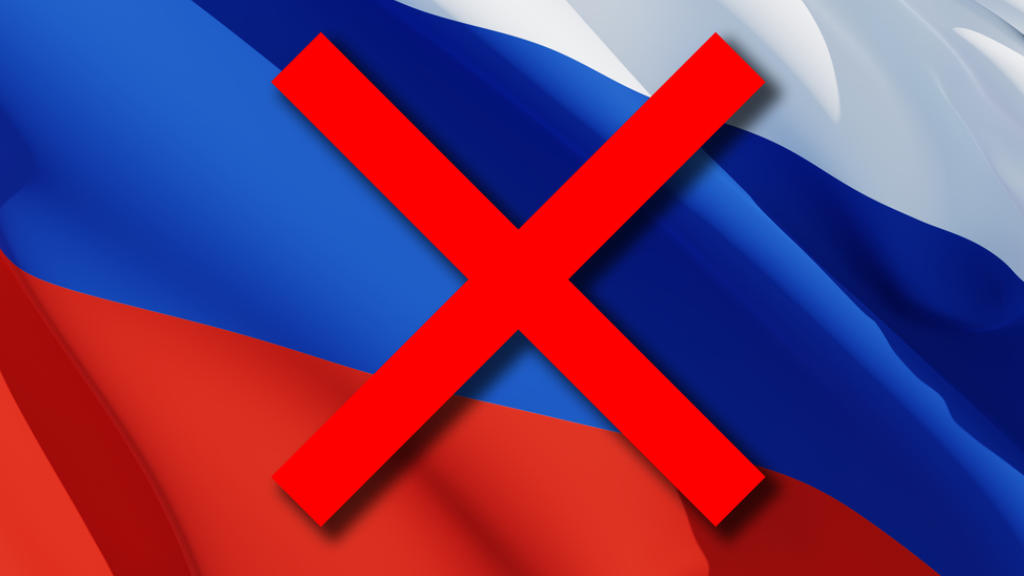Or: Is This Article Russian Propaganda or an Intellectual Debate? You Decide.
The extraordinary lengths to which Europe has gone to support Ukraine – and in turn, seek to turn public support for the countries leadership and therefore pursue a highly aggressive anti-Russian stance are unprecedented over the past century.
Never to such an extent has Russia-phobia been hyped up to such an extent – not even during the Cold War, when the entire world came very close to nuclear Armageddon. It wasn’t just limited to the Cuban missile crisis either – we can gain a glimpse of more recent unease between the Russia and the United States from viewing the Frankie Goes To Hollywood “Two Tribes” hit single, released in 1984.
However, that dynamic has shifted. During that era, the world was concerned about war between the United States and Russia, with most of the rhetoric – President Reagan’s infamous ‘joke’ “We begin bombing Russia in five minutes” being a scary example of US black humour of the time. Needless to say, it didn’t go down well in the Kremlin, with its leaders branded ‘humourless’ – which one would be given such comments.
Three things have changed since then. Firstly, the rise of the internet as an instant, global method of exchanging information. Secondly, European attitudes towards Russia. And third, shifting geopolitical dynamics. These are affecting Europe in ways never seen before. And while there are some potential positives within these changes, the manner in which they have been adopted appears to have created long lasting damage to Europe in particular. In this article we examine these issues and try and make sense of the dynamics and what they imply.
The Rise of Digital Communications

The internet has revolutionized the way in which the world’s popular community shares information. Intelligence, opinions, information – and misinformation – can now all be exchanged and distributed within milliseconds. Interestingly, the world’s most popular platforms for doing so are all US based. Hence the likes of X (Twitter), Facebook (Meta) and Linked In have become global giants. Other countries have their own versions of these, including China and Russia, however these are essentially regionally restricted due to their language usage. The global community tends not to be able to read either Chinese characters or Cyrillic, but they do – even as a second or even third language – understand English. This means that the global dominance of English-speaking platforms will continue.
Naturally – and almost inevitably – the United States, UK and much of Europe (where English is a common second language) and their governments – including information and security agencies – have looked at this advantage with some abandon. The use of these platforms to spread misinformation has become weaponised. This is just one reason that these social media networks have been banned by some countries, and especially those who have been critical of, or are regarded as ‘competitors’ (China) or ‘threats’ (Russia). It has also been interesting to observe the opinions of China gradually shifting from ‘competitor’ to ‘threat’ over the past two years. Clearly, a planned narrative is in place when it comes to influencing public opinion – still required in both democracies and autocracies.
The rise – and fast speed of this sharing – a technical advance – may however have already overtaken human capabilities. The human brain is often described as an excellent ‘thought-processing machine’, but it has only evolved to process naturally occurring levels of information. Some decisions made take time, such as the developing of a relationship with another person, or what to cook for dinner. Others are immediate, such as the emergency responses such as being surprised by a Lion and (hopefully) running away.
In between these two formats are the consideration thought processes, that are more analytical, experience based and allow us to form considered, objective opinions as regards a measured reaction. But what has happened with the rise and speed of digital information availability is that our brains are constantly being pressured with making ‘immediate’ opinions – the emergency mode. The problem is that this constant barrage of stimulation becomes addictive. It has also been shown to rewire our own brains to accept shorter, faster bursts of decision making and the underlying satisfaction the brain also provides in having done so. The downside is that the brains’ ability to concentrate for longer periods – the consideration process – is diminished. Numerous medical studies have confirmed this effect, such as here, here and here. Both governments and the media platforms concerned know this. It benefits both – media platforms generate more advertising income from social media addicted views, while governments use it as a form of opinion control. The internet has become the ultimate capitalist tool – and it is staggeringly effective.
In the case of anti-Russian information, this has resulted in actions never before attempted or experienced. While the Russian President, Vladimir Putin, has received most of the brickbats handed out by the West, ordinary Russians have been targeted as well, in a significant departure from what was previously deemed as acceptable behaviour.
Business

There are several examples, with most bilateral focal corporate points being placed in abeyance. The Russo-Britain Chamber of Commerce (RBBC) which had existed since Russian Imperial times and continued even during the height of the Cold War didn’t just suspend its operations – it was subjected to a targeted media campaign to discredit it, including attacks on a member of the Royal Family, the British Ambassador, and her husband. For the first time in over 100 years, it has ‘indefinitely’ suspended operations. A business bridge between British and Russian companies, its function has now been taken over entirely by the British government. The British government now controls all access to Russian trade. British ‘free enterprise’ as concerns Russia has been removed. This is actually the methodology utilised by State-controlled economies – such as Communist nations.
The Arts
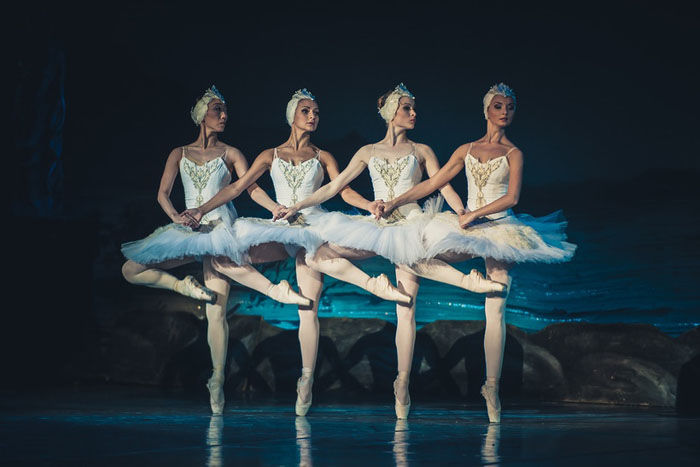
In the arts, performances by Russian artists have been cancelled throughout the Western world. There are multiple examples, but we illustrate a few concert examples that never happened here, here, here, here, and here.
How does this compare with the Russian viewpoint? Interestingly, there has been no cancelling of European works in Russia. A simple look at the October Mariinsky Theatre website playbill will reveal European composers such as Adam, Debussy, Delibes, Leoncavallo, Mozart, Puccini, Rossini, Verdi, and Wagner, and that’s just in week two.
History
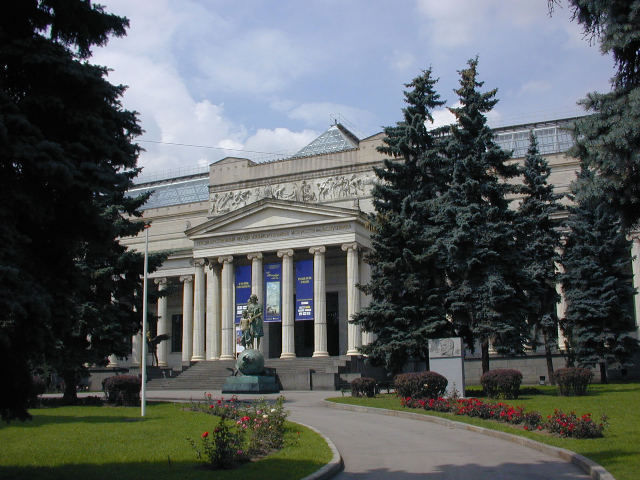
Europe’s cancel culture has also impacted the great thrones of learning – museums. More sad examples are here, here and here.
There’s even a specific ‘cancel Russia’ website which states that “Russian culture is a colonialist culture, and no support whatsoever should be given to Russian artists, writers, or musicians and their exhibitions, publications, or concerts.” We’re not sure which historical academic – if any – provided this opinion and that it is the only correct one (it isn’t). However it takes the popular opinions against Russia into past history and decides that even 18th and 19th century arts are now 21st century subversive. This is getting very close to the real destruction of art, culture, and history, and is just a small step to methods deployed by the Nazi’s against the Jews. Perhaps someone could explain why watching “Swan Lake” is an endorsement of Russia’s contemporary foreign policy.
Sports
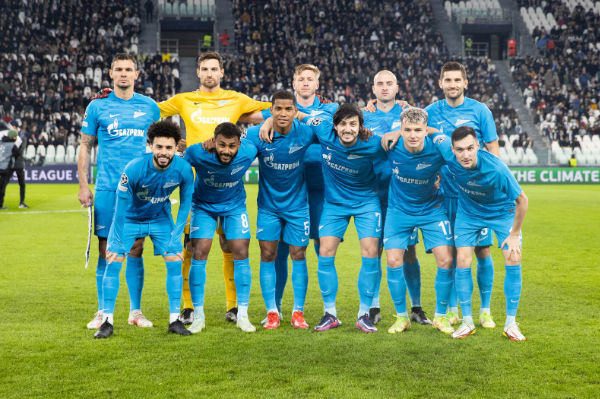
Sports of course were one of the first activities to fall. Russia, after hosting an excellent 2018 tournament, were subsequently barred from completing their 2022 World Cup soccer finals rounds (they were on track to qualify) and are completely excluded from the 2026 event. The Olympics, likewise, has completed its past two Games without Russian athletes, which somewhat diminishes the competition. Are these ‘so easy to cancel’ attitudes really necessary? Or desirable? Is a Russian ballerina or concert pianist really a threat to European security? Is it really wise to cut off cultural and historical relations from a country that itself has been part of European culture and history for hundreds of years in such a manner? Has any real contemplative thought gone into this? Or is it led by the fast reacting speed of internet opinion and distribution? These are debates that should be taking place. The problem in Europe is that when they are – the cancel culture harasses the organisers. Is this real freedom of expression? Freedom to voice one’s own opinion?
Media
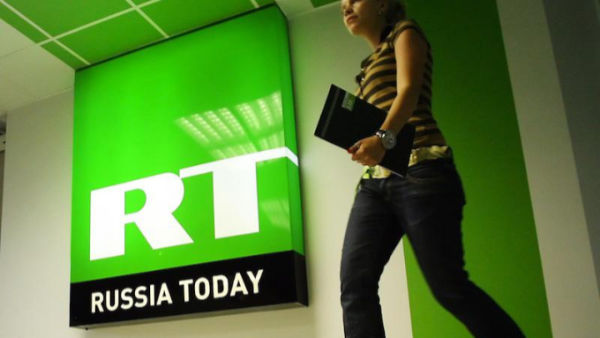
Most Russian media has been blocked in the West, typically under the guise that it mirrors the Russian government views and is therefore both biased and misinformative. Curiously, very few Western media outlets are barred in Russia, even without VPN. Those that are include the BBC. However, CNN, The Washington Post, New York Times, Financial Times, Economist and nearly all well-established Western media outlets are all freely available for view, without a VPN, in Russia. It’s an unusual thing to say given the ongoing autocratic vs. democratic freedoms debates so beloved by the West, however media freedoms and the ability to view what one wants, unrestricted from government interference, are rather better in Russia than they are in Europe.
Travel
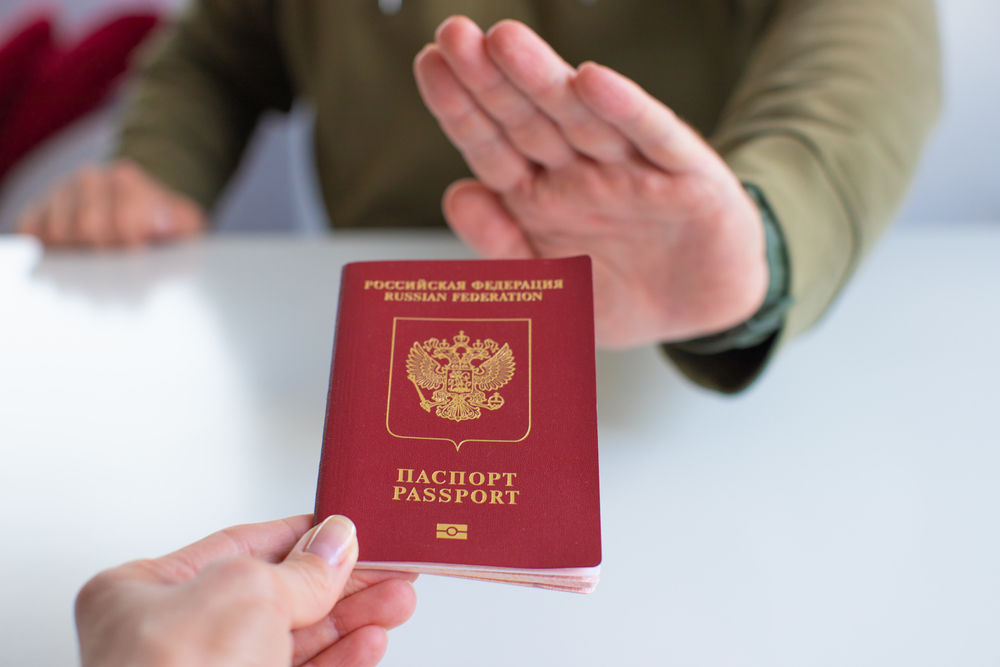
European nations, including the UK and United States, has imposed ‘unofficial’ barricades for ordinary Russian (and Belarusian nationals) to obtain visas to visit. They are either now routinely denied, or valid for very limited times. The West also barred all Russian airlines from entering their territory, meaning there here are no direct flights between EU countries and Russia. Russian aircraft use has also been sanctioned.
There has been a considerable impact; Ylva Johansson, the European Commissioner for Home Affairs, has stated that there has been an 88% drop in the numbers of Schengen visas issued to Russian nationals, as they represent ‘a security risk’. Be that as it may, Russian tourists have changed their travel plans – 24 million Russians are expected to have taken overseas trips by this year end – with the vast majority now heading to Asia, and not Europe. The damage to the European tourism industry has been immense.
In contrast, Russia has not placed visa restrictions on European nationals – in fact it has made the application process simpler and less time consuming – by introducing an official online service. Meanwhile, foreign visitor numbers to Russia have increased, mainly due to the introduction of visa-free services to several Asian countries. 2024 figures are expected to show about 16 million foreign visitors to Russia for 2024.
Trade
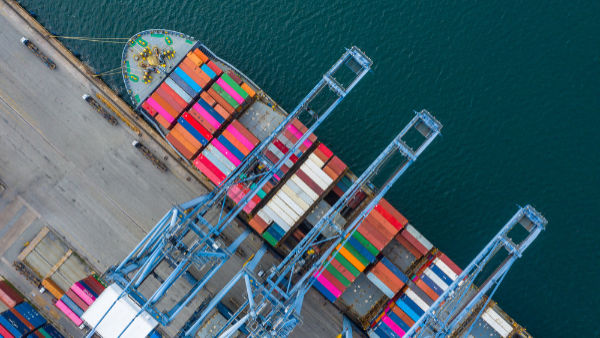
Some 22,500 sanctions have been imposed by the West upon Russia, which in turn has become the most-sanctioned country in the world. According to the Center for a New American Security, Russia now accounts for 61% of all sanctions issued by the United States. That compares with perennial bad boys Iran (14%) and North Korea (2%).
In terms of restricting Russia’s ability to access Western-made products, these have had little effect. Other third-party suppliers just filled the gap, buying and selling between the West and Russia. There is nothing that cannot be obtained in Russia today, from the latest Porsche to French wines, the latest iphone or English mustard.
What has impacted Russia negatively has been the secondary sanctions issue, in which Washington has threatened other countries with sanctions – and especially disconnection from the SWIFT payments system – if they process payments to and from Russia. While this has slowed trade growth – and especially with China – it hasn’t stopped it. What it has done however is two-fold – it has ushered in a profound non-Western distrust in how the United States in particular conducts its foreign policy and trade, which will lead to negative repercussions for the US down the line. It has also ushered in the beginning of alternative payment systems, which for Russia now has become a technical priority.
This can be expected to materialise as early as next year. We know this because Russia has passed legislation allowing its Central bank to trade in cryptocurrencies and has ordered its commercial banks to offer digital transfer services to all their clients from July 1. China meanwhile has actioned nearly US$1 trillion in digital, non-SWIFT payments over the past 18 months. That amount alone is about 3.5 times the total volume of its annual trade with Russia.
The longer-term impact will be increasing de-dollarisation, also significantly affecting the euro. It was notable that the New York based Nasdaq advised clients of a need to off-load dollars.
In overall trade terms, the EU has overseen – quite deliberately – a substantial decrease in its trade volumes with Russia. In 2021, the total trade in goods between the EU and Russia amounted to €257.5 billion. The EU’s imports from Russia were worth €158.5 billion, while EU exports were worth €99 billion.
That has shrunk to about €70 billion worth of imports from Russia for 2024, while the EU will have exported an estimated €29 billion worth of goods – a 70% total decrease in its supplies to Russia. In short, the EU decimated its exports industry while economically restraining its own manufacturing capabilities – most of its imports from Russia were cheap energy, powering its industrial base. As a result, the EU’s energy costs have soared while industrial productivity has declined. The EU’s overall PMI numbers (these measure productivity: below 50 is retrenchment, above is expansion) are an average of 45, in Russia (with no energy shortages) they stand at just over 52 – seven full percentage points higher.
These EU exports – a large part of which were in significant supply chain and added value industries such as auto manufacturing – will never come back. The Chinese auto manufacturers stepped into the gap left by exiting EU models and now represent the largest foreign auto brands available in Russia.
The other issue is economic reality in the political arena. The EU simply isn’t as important to Russia as it once was. While Russia made moves to engage with friendlier countries, the EU has quite deliberately diminished its own trade importance to Russia. Brussels self-importance has significantly damaged its trade reputation and vitality in Moscow. The EU is simply not worth what it once was to Russian trade aspirations.
Meanwhile, what about the average Russian consumer? Well, Russian domestic replacements are proliferating, while angry fashionistas are chopping up their Chanel and LV bags and buying high end Asian brands instead. It’s never a wise move to mess with a Russian girl.
Political Attitudes

The general social media attitude towards ordinary Russians has also changed. On one hand, Western media has portrayed Russia as run by a mafia and having rigged election results. Yet on the other, ordinary Russians are blamed for ‘putting Putin in power’ and somehow culpable for the situation in Ukraine. That is unfair. The West can’t have it both ways.
There is also an attitude that by imposing bans on exports, refusing visas, and generally being deliberately difficult towards ordinary Russians, this means that somehow the Russian population will instigate a revolution and depose Putin. This is both naïve – and implies a civil war. But Russia has been here before. Its previous revolution resulted in about 10 million deaths. A new one would almost certainly result in far greater numbers of casualties and usher in fighting across Eurasia. The more frenetic media commentators suggest that dead Russians are preferable to dead Ukrainians. The rhetoric, in choosing who has the right to live or die, based upon their nationality is morally abhorrent. The observation that all Russians – men, women, children, grandmothers and babies – are collectively responsible for the deaths of Ukrainians ushers in the concept of national guilt – charges laid against the Germans and the rise of the Nazi’s. The question to ask – and many would say yes – is whether Russia really is a Nazi style state? But Putin doesn’t appear to be holding mass ideological rallies – and has suggested numerous times here, here and here amongst several other occasions, that he wants to negotiate a settlement and regain peace. Yet this is near impossible when Ukrainian President Zelensky passed a Ukrainian law expressly forbidding this.
Such attitudes have spread across Europe. No-one is talking to Russia – and to be seen to be even talking to a Russian has become politically suspect. Russians living in Europe and the United States have been ostracised, as the Jews once were. Western attitudes have now spread to social intolerance, and discrimination. Russians in the West now face social ostracism, bias, and outright antagonism. Its hard to feel sorry for Oligarchs, but there have also been some highly legally dubious confiscation of assets – some of which will take years to be resolved. Yet this discrimination affects ordinary Russians as well. Is it right to place the blame for the current geopolitical situation amongst all Russian nationals? Women, Children and Babies?
The outcome is twofold – the demonisation of a specific nationality, including the sparks of implied violence – and a complete degradation of anything Russian. This is borderline racist. The questions the EU should really be asking itself is whether this is the type of society it wants to encourage. It may surprise many, but Russia has decided it does not.
There are arguments against that, with pointers to LGBTQ rights, however the real issue here is that Russia is a conservative country with a fundamental traditional makeup. Russian social society generally doesn’t care – and has no interest – in what goes on in private bedrooms – homosexuality is not illegal – yet it doesn’t want such sexual liberations paraded in public either. Russia has found a balance that suits its own society. Western liberals appear to think this is backward and demand change. In Russia, a country in which they do not live. It is an old colonial attitude – Europe knows best. But does it? And who is next in line for this special kind of Western treatment? China? Africans? Muslims? Where does this stop? Or does it progress?
Aftermath

In a word: Isolation. In fact, this is exactly the term that the West – including Europe – uses to describe Russia’s position in global affairs. Yet this itself is a falsehood. While the much repeated, claim that 143 members of the 195 United Nations members voted negatively towards the initial reaction to Russia’s conflict – termed an invasion – of Ukraine, that was at the very beginning of the conflict, when Western diplomatic and media exposure condemning it were at their zenith. That vote, crucially, did not call for action.
Two years on, and the situation has changed. There is now a greater and more in-depth understanding of the reasons for the conflict, and more cause for non-Western countries to be cautious about supporting the Western perspective. Crucially, this now falls into distinct, and separate camps in Western mindsets: economies resisting Western pressure are in thrall to Russian energy and therefore not capable of rational decisions, are driven by a reliance on Russian weapons exports, or are politically suspect. As at now, just the United States, most (but not all) of the European Union, the United Kingdom, Australia, New Zealand, together with limited assistance from Japan and South Korea are supportive of sanctions leaving, a rather more sizeable group – 75% – of non-Western countries who are not.
Systemic Differences

So where is this going? The trends point to further diplomatic and trade spats ahead. There are dark clouds surrounding the West’s relations with China, and especially over technology-driven products such as EV’s. This hasn’t come out of nowhere. It has come out of a complete failure by the West to embrace technological change and evolve. The inherent problems with the democratic, capitalist system have begun to manifest: short-term profit taking at the expense of longer term sustainability, and short-term planning at the expense of longer term, scientific solutions.
There is profound gap appearing in the management and direction of what can now fairly easily be termed “West” and “East”. Much of this is scientifically and educationally driven. A google search of mainstream Western politicians as opposed to Russian and Asian is revealing.
In the West – the United States, UK and Europe, the ‘political class’ have taken precedence. These individuals have typically been educated in ‘political science’ (usually promoting the superiority of the capitalist system over Marxism). Here are several examples. Check out the educational ‘political science’, purely Western based legal qualifications, and examples of academic plagarism: here, here, here, here, here, here, here, and here.,
It should be noted that all the academic qualifications owned by the individuals above are theoretical rather than practical. None are scientific. Readers can do their own, subsequent verification research.
In contrast, here are the academic backgrounds of Russian and major Asian politicians, here, here, here, here, here, here, here, here, here and here. (Top marks if you knew Putin is an economist). The point is the educational background between West and East is different – theory against practicality. What then becomes apparent in the non-Western nations is that the decision-making process is based upon scientifically educated backgrounds, while the West has reverted to largely political – meaning capitalist – theory. One is based upon practical reality, the other upon short-termism. It is tempting to view the problems the world faces today as having, at least partially, been created by over-exploitation and unfettered greed caused more by political science theory and the supporting laws, than the engineers and scientists views. But this may change.
The Immediate End Game

Assuming these differences do not result in a nuclear conflict – which is alarmingly hard to dismiss – what will happen next?
The systemic differences between Russia, Europe, and the overall West vs. the Rest appear hard to overcome. If this is true, then Western sanctions against Russia will not change even if the situation in Ukraine is resolved. Europe will remain disenfranchised from Russia, and this will inevitably impact its relations and influence with any country east of Poland. There are signs that the EU wishes to extend this stance into trade wars with China, battles against technology and pricing they cannot hope to win.
This means a continual shift towards reliance upon the United States, in both trade, supplies and security. We covered the fragility of this reliance in this article Europe’s Supply Chain Crisis Deepens As Russia & Asia Steam Ahead which detailed long term and hard to resolve supply chain problems in the Red Sea from Asia, and critically, also from the west coast of the United States. This isn’t Russian propaganda; these are real issues.
This in turn implies that the European Union and UK will start to come under more economic pressure. They will be viewed by the United States as an exclusive import-export market which Washington wishes to control – for the benefit of the United States. However, there is precedence. A geopolitical and trade look at how the United States has managed Central and South America, right on its doorstep – should give serious cause for concern. This region has been largely stripped of its resources – a continuing process – has significantly devalued currencies, and has serious political and in some cases, military problems. That is the role model.
It is unclear whether the EU has the capability or even political will to emerge from this morass. If it does, then it will need to realign with Russia and Asia as a priority. If not, then we will likely see the emergence of a new Pangea – a supercontinent comprising the East Coast of the United States, the UK, and the Western European Union. That will become an exclusive, – and expensive – free trade zone. It will be hard to get in. Visa requirements may require political allegiance.
Other parts of the existing EU, especially to the East, may well devolve, either into an alternative Eastern bloc, or as part of a Moscow initiative such as the Eurasian Economic Union. Think a downsizing of the EU can’t happen? It already has – Brexit. Devolution may well continue as Hungary and Slovakia appear thoroughly discontented, and others may follow if EU spending continues to impact negatively upon their own budgets and economic growth.
It appears hard to make a case for the EU surviving in its current format. It is, in some way, not European enough, and especially when Brussels attempts to understand or reconcile much of its territories Soviet history. That remains an underrated – and unresolved – fault line.
Elsewhere, global trade will diversify into regional blocs; but will develop independence away from the West. Russia and China will be hugely influential in these areas, both in terms of energy (Russia) and finance (China). India will remain more insular, however still important. All will be heavily involved in a BRICS styled “Belt & Road Initiative 3:0” which will see all involved in non-Western infrastructure development. None will trade in the US dollar except when it involves the US-EU bloc.
The Future EU

The ultimate question is whether this is good for the European Union? Or Russia?
The upshot is that the EU will become a de facto asset of the United States. It will lose independence, although living there should be comfortable – but not quite to American standards. The ‘American dream’ will continue to be promoted. But on the downside, Europe will be terrorised. The world to the East will be dressed up as dangerous, backward and inferior. Europe has been here before of course, and for many it was a preferable system of schizophrenic societal management. The future for Western Europe is to become more American, paranoid, and controllable.
For Russia, it means globally influential expansion. It is already investing in its own quiet version of the Belt & Road Initiative and is attracting old European colonial habitats in South America and Africa into its own orbit. Russia, China and India are already supporting this process with their own vested interests. The Chagos Islands and Niger are just small examples of what is already becoming a cascade of switching political allegiances from West to East.
There is, however, a bellwether. The question is not now which countries are clamouring to join the European Union, it is which countries now wish to join the BRICS. That provides the breeze indicating which way the global trade and political winds are blowing. The issue readers should ask is simple: Are you prepared – or not?
Further Reading
China Needs A Strong Russia, While Russia Needs A Stable China – Russian Foreign Minister

 Русский
Русский








